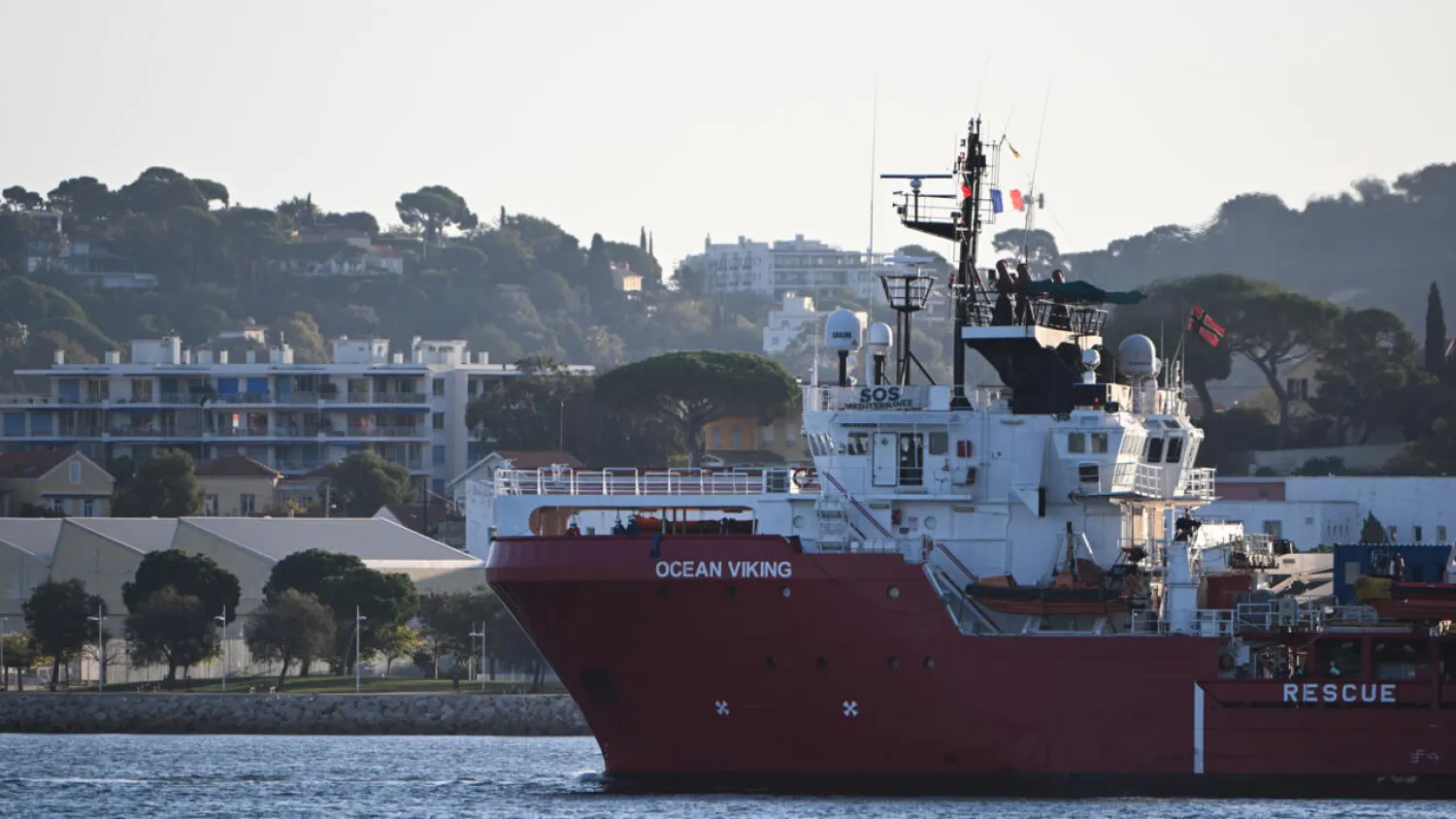A rescue ship carrying 230 migrants docked at the French port of Toulon on Friday amid a blazing row between France and Italy over which country is responsible for them.
The Ocean Viking, operated by a French NGO, had picked up the migrants at sea near the Libyan coast before spending weeks seeking a port to accept them, said AFP.
France had never before allowed a rescue vessel carrying migrants from the Mediterranean to land on its coast, but did so this time because Italy had refused access.
The rescue came a day after French Interior Minister Gerald Darmanin said the migrants were Italy's responsibility under EU rules, and that the French move was an "exceptional" measure.
He called Italy's refusal to accept the migrants "incomprehensible" and that there would be "severe consequences" for relations with Italy, which he said had "lacked humanity".
The migrants, more than 50 of whom are children, were taken to an international waiting zone pending the processing of requests for asylum.
They would not be allowed to leave the zone until the process was completed in about three weeks, the government said. Asylum interviews were to start Saturday.
The shelter, a short drive from the port, was heavily guarded. An AFP team was one of the few media outlets granted access.
Ibrahim, a 17-year-old from Gambia, said landing in Toulon was an unexpected "dream".
Like many others, he thought he would arrive in Italy, but finds himself in France, where he would "love to stay and start his life".
He is missing a tooth, which he said was from the abuse he suffered in Libya.
"All I wanted was to leave Libya (and leave) hell," he said.
Ibrahim had been handed a coat, but many of the other migrants were still barefoot when AFP arrived. Some sat on white plastic chairs in an outdoor hall.
Among them was an 18-year-old from Pakistan, who clutched a binbag containing his only belongings. Imran -- a pseudonym -- spent 21 days at sea, he said, and felt exhausted.
He wondered how long he would be able to stay in France.
"They haven't told us anything," he said.
"As long as we are no longer in Libya or at sea, I am fine with anything. I needed to be on dry land."
His most pressing concern, he said, was to let his family know he is still alive.
- 'End of an ordeal' -
In retaliation for Italy's stance, France has suspended a plan to take 3,500 refugees currently in Italy, part of a European burden-sharing accord, and urged Germany and other EU nations to do the same.
On Friday, Italian Prime Minister Giorgia Meloni condemned what she called an "aggressive reaction" by the French government, telling reporters that it was "incomprehensible and unjustified".
The Ocean Viking ship had initially sought access to Italy's coast, which is closest to where the migrants were picked up, saying health and sanitary conditions onboard were rapidly worsening.
Italy refused, saying other nations needed to shoulder more of the burden for taking in the thousands of migrants trying to reach Europe from North Africa every year.
Following the disembarkation in Toulon, French President Emmanuel Macron said the debate over migration in France could not be resolved "if we do not have a real European organization that works".
He also stressed the importance of understanding "how to resolve the problems of inequality with the African continent and the other shores of the Mediterranean."
"Everybody is very, very tired, but also relieved to set foot on land, it's the end of an ordeal," Laurence Bondard, a member of SOS Mediterranee, the NGO in charge of the Operation Viking, told AFP.
But the organization also said that migrant ships should not have to make the long journey to France in future rescues.
"It is wrong that people disembark at such a great distance from the rescue locations," SOS Mediterranee president Francois Thomas told reporters.
Operations director Xavier Lauth said the ship would resume rescue missions "because we don't accept that this sea becomes a cemetery".
Some 600 police were deployed for the ship's arrival, with the Red Cross in charge of humanitarian aid.
Meloni, head of Italy's most right-wing government in decades, has appeared ready to push the dispute to the top of the European agenda.
Italian Interior Minister Matteo Piantedosi said Thursday the request had been for "234 migrants, when Italy has taken in 90,000 just this year".
Nine European nations have committed to hosting two-thirds of the migrants, Darmanin said Thursday, with the remaining third staying in France.
So far this year, 164 asylum seekers have been moved from Italy to other nations in the bloc that volunteered to accept them.
That is a fraction of the more than 88,000 that have reached its shores so far this year, of which 14 percent arrived after being rescued by NGO vessels, according to the Italian authorities.









